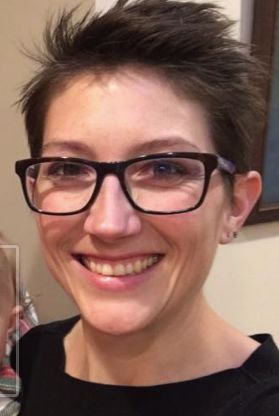I was sitting at my desk at the county on Thursday when I found out about the shooting at The Capital Gazette, a newspaper in Anne Arundel County, Maryland, an area similar in population and size to Sonoma County. I exclaimed, “Oh no!”
Nobody heard me and maybe that’s ok. Maybe it was the cubicles. Maybe it was the fact that we had a huge cannabis hearing going on. Maybe it was the fact that it didn’t cut my colleagues the way it cut me. It wasn’t an event like 9/11 or our county fires, events that rock a huge swath of people to its core.
But it was a major event that rocked me to my core. As a former journalist, I never fathomed not being safe in my newsroom. In fact, the newsrooms at both Sonoma West Publishers and the Independent Coast Observer were two of the safest places I’ve been; they are places where I could freely express concerns, differences of opinions and inappropriate jokes.
They were not places where someone brings a firearm and murders five people. Or so I thought … and I tend to think I’m a pretty rational person.
I get that journalists (even former journalists) are weird people. We hear sirens and get excited, knowing there’s a story to tell. Blood, guts, fire, earthquakes, murder and trauma don’t shake journalists the way it shakes other people. They beckon the journalist, encouraging the reporter to get the story out so people know what the heck is going on.
I know this firsthand. Living and reporting on the coast, I’d chase sirens whenever I heard them. Whenever I received reports from the sheriff about danger, I’d go forth, not away. Even now, though I’m no longer a reporter, I hear sirens or see Henry-1 and think, “I need to get out there.”
We’ll put our lives on the line without thinking about it. We had an active shooter in Bodega and my journalistic instincts told me: Go out there. It doesn’t matter that you’re six months pregnant and your 3-year-old is in the car with you; go get the story and find out what’s going on.
Again, I’m usually pretty rational.
Sometimes journalists make questionable decisions, but they’re always for the greater good of the community. And that’s what it’s all about: letting people know what is going on.
I’ve heard people ask about The Capital Gazette reporters, “How can they be so callous and publish a paper anyway?”
It’s the same response our area papers had when half of our county burst into flame in October; despite the tragedy and the horrific nature of those fires, our local journalists doubled down, focused on the facts and worked to help the community.
It’s how newspaper reporters cope and deal with trauma. They get stuff done. They aren’t being callous. They’re grieving, no doubt about it, just like you. When journalists experience trauma in their communities, grief comes out as work.
It’s messed up, I know. Ask my husband; he’s wondered many a times when I’ve been “excited” about a death if I’m right in the head (I get it; talking or obsessing about a suicide or murder isn’t great dinner time talk, especially with little ones at the table).
But here’s what it comes down to: If I can’t help others during time of grief and difficulty, that’s when I don’t feel like my most honest and true self. I think most journalists will answer in a similar way.
You won’t see their grieving on their faces or in the way they walk. You’ll see it in inches of columns and articles and pixels of pictures. You’ll see them making sure their community understands what’s going on and that their community is ok. That’s what makes journalists superheroes.
Please consider donating to the fallen superheroes and their families of The Capital Gazette. Visit GoFundMe.com and search for “Help Capital Gazette Journalists.”
Amie Windsor is a former member of the Sonoma West Publishers staff.









